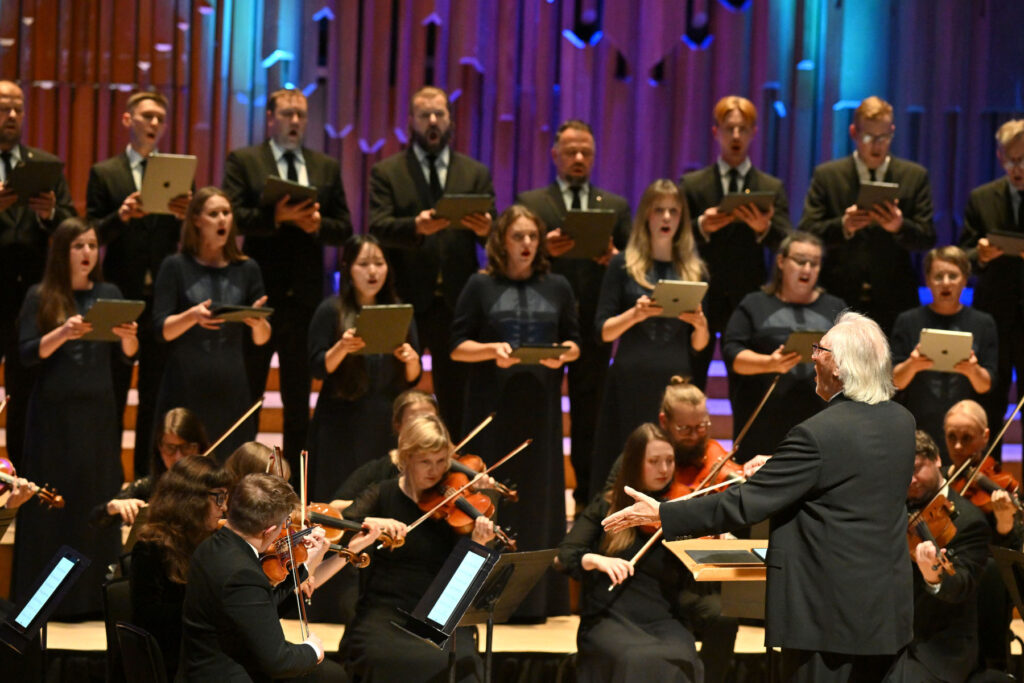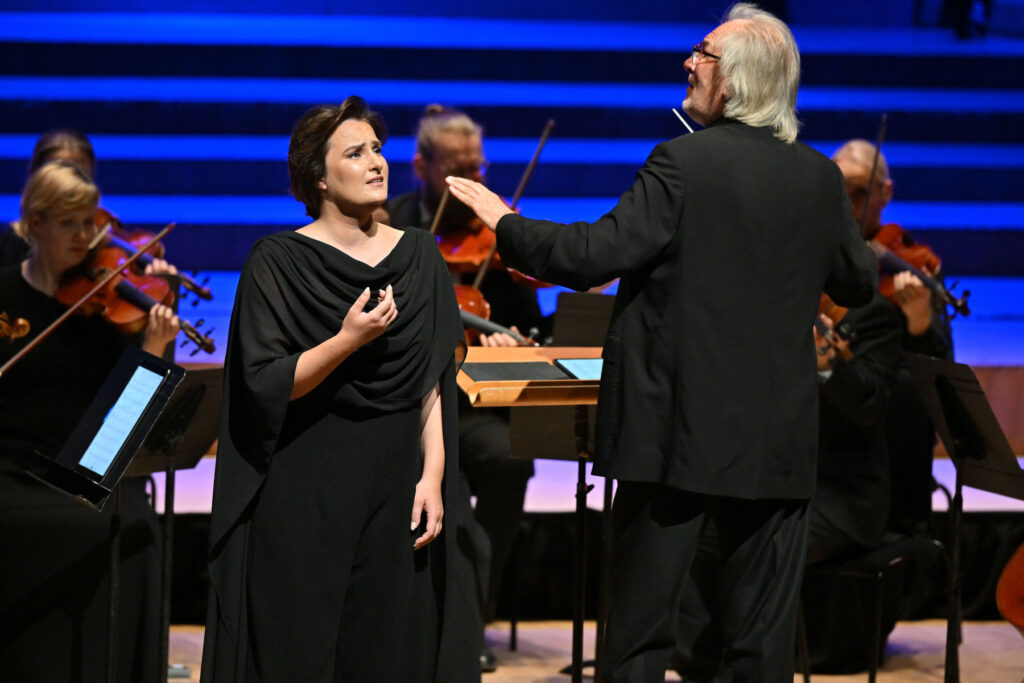Since the first recording of his music in 1984 on the German label ECM, Arvo Pärt has attracted a huge following and an international reputation. With a significant birthday for the Estonian composer, it’s no surprise that attention is being given to him this season in multiple venues across the UK. Still considered in some circles a holy minimalist, Pärt’s ascetic musical language is immediately recognisable in works such as The Beatitudes, Passio and Spiegel im Spiegel, all drawing on music of the past and rooted in his faith. This recent Barbican programme brought together relatively familiar fare with lesser-known works for voices and string ensemble including the London premiere of L’abbé Agathon, a work markedly different from the austere beauty of earlier works based on his tintinnabulation mode of expression.
Originally conceived for soprano and eight cellos in 2004, L’abbé Agathon outlines a haunting legend drawn from The Sayings of the Desert Fathers concerning a hermit (Agathon) who is tested by a leper before revealing himself as an angel. While the work retains Pärt’s characteristic austerity, this version for string orchestra can be likened to a dramatic scena, its desert journey and busy marketplace conjured in plodding string figures and agitato passages. Maria Listra, declaiming her narration in French, brought pellucid tones and an immediacy of communication, arresting in her celestial departure as the mysterious leper disappears heavenwards. With performances like this, the work should be heard more often and could fit neatly with the two other string works in this programme along with the composer’s Berliner Messe.

Proceedings began with a polished account of Arvo Pärt’s Cantus in memoriam Benjamin Britten, a work that combines simplicity of technique with richness of expression. It’s become a signature piece for Pärt, and under Tõnu Kaljuste’s clear direction, its descending scales, like tears of lamentation, were beautifully sculpted by the Tallin Chamber Orchestra.
No less rigorously shaped was the seldom-performed Adam’s Lament, where alternating upper and lower voices narrate the sorrows of the penitent father of mankind. Its Russian text, compiled by the 19th-century monk Silouan, was drawn from his volume, Staretz Silouan. Expressive dissonances, abrupt shifts in sonority and declamatory vocal lines against dramatic string writing combined to generate a 20 minute plus work of concentrated gravitas, beautifully rendered here and once again bringing into focus Pärt’s ability to match religious texts with transcendent music.

That gift is shown in a strikingly individual way in his Te Deum – another seldom-performed work, but one I heard nearly 30 years ago in Llandaff Cathedral, again with the Estonian Philharmonic Chamber Choir, also under Tõnu Kaljuste. Of this 1984 work – conceived for three choirs, strings, prepared piano and wind harp – Pärt has said “I had to tease this music carefully out of silence and emptiness”. Certainly, the electronic drone added to the music’s sense of timelessness, even if its pianissimo dynamic was largely ignored. But its fusion of medieval plainchant and bell-like vocal lines were well served in sumptuous tone, with those brief forays into D major gloriously uplifting. Ideally, the three choral groups would have been more widely separated, but here the overall effect was still compelling, the lilting coda on the word ‘Sanctus’ (evoking perhaps the slow swing of a censor) fading into the distance toward the silence of the opening.
Before the Te Deum, Harry Traksmann had been an athletic violinist for Fratres in the version for string orchestra, drum and woodblock, and the concert’s second half had begun with a work entitled Vesper by Pärt’s former teacher, Ester Mägi (1922-2021). With its modal colouring, one might have looked for influences from early 20th century English composers such as Vaughan Williams. Whatever the original stimulus Kaljuste and the Tallin Chamber Orchestra drew out all its warmth and tender expression.
David Truslove
Arvo Pärt – Cantus in Memoriam Benjamin Britten; L’abbé Agathon; Adam’s Lament; Fratres; Te Deum;
Ester Mägi – Vesper
Estonian Philharmonic Chamber Choir; Tallin Chamber Orchestra; Marin Listra (soprano); Harry Traksmann (violin); Tõnu Kaljuste (conductor)
Barbican Centre, London, 7 October 2025
All photos © Mark Allan